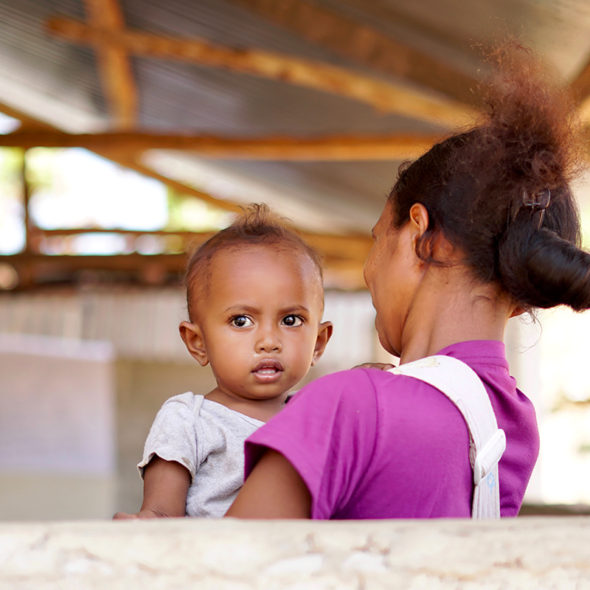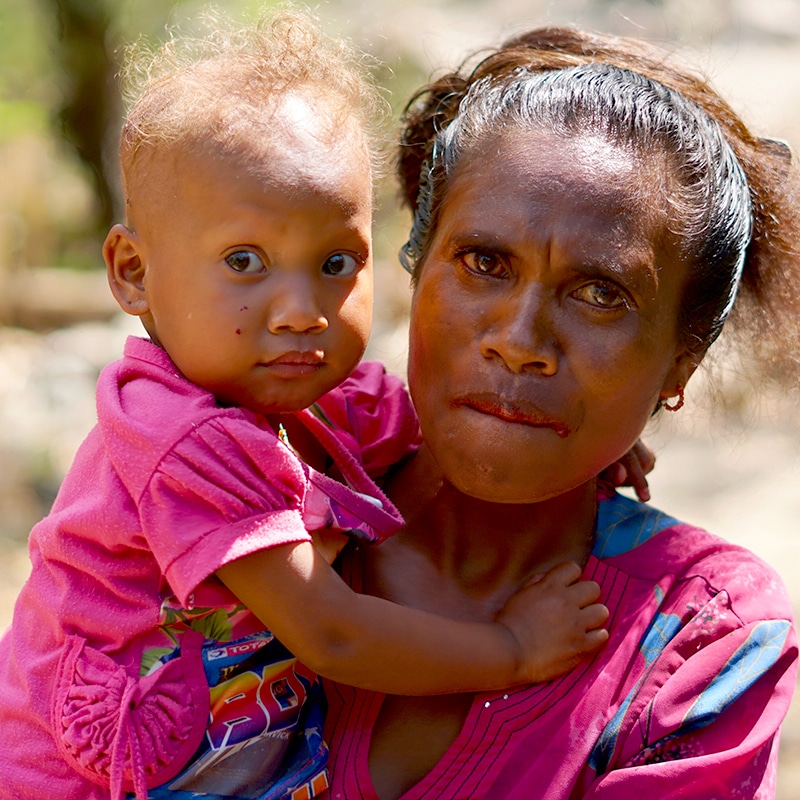COMMUNITY & REPRODUCTIVE HEALTH
Every mother wants her children to be healthy.
In every village, in every country, every mother’s most desperate desire is to have enough food to feed her children. Regardless of language, culture or tradition, her dream is to watch her children grow, learn, play, laugh and have hope grow inside them. World Neighbors works alongside these families, accompanying them on the road toward well-being, working to reduce child malnutrition, maternal and child mortality, and the devastating effects of preventable infectious diseases.
The communities where World Neighbors and its partners work are seriously challenged by lack of health services, poor roads, isolation, degraded soil and limited access to clean water. Community health in these villages is also affected by the political economy, violence, corruption and cultural traditions. The work of World Neighbors is to work together with the community; integrating their need for improved agricultural production, improved nutrition, income generation and good health.

The essential premise of World Neighbors community health programming is that all families have the right to live in a clean and safe environment with access to clean water, sanitation, adequate food and access to health services and health education.
We work with our local partners, the Ministries of Health and other community organizations and NGOs to advocate and work toward improved health.
Along with World Neighbors area staff, the community assesses its own needs and resources and then proceeds with a plan to address their health concerns. These concerns can range from no sanitation facilities, lack of access to contraceptives, women giving birth without a trained attendant, inadequate quality and quantity of food to poor housing, lack of clean water and high prevalence of diarrheal disease and malaria. Building capacity and a continual focus on the inclusion of all community groups (e.g., women, youth, elders and indigenous people) is essential in the village development process to improve health in the community. The World Neighbors approach in Community Health includes the following issues: nutrition, maternal and child health, HIV/AIDS awareness, infectious disease control, vector-borne illness, immunization, health education and water and sanitation.
Community Health & Nutrition Resources
World Neighbors in Action
Educating Families about Reproductive Health
Reproductive health includes family planning, health services, health education and prevention and treatment of sexually transmitted infections.
Reproductive health also includes providing a safe, clean and supportive environment for labor and birth, supporting breastfeeding and essential care for the mother and newborn.
World Neighbors works alongside the families, couples and women in the villages to promote their full and active participation; provides education, support and access to contraceptives through partner organizations; includes adolescents of the villages in the planning and educational programs; and improves the communication skills necessary to negotiate and plan for a healthy reproductive life. The World Neighbors area staff and partner organizations also address the damaging physical and psychological effects of female genital mutilation and other traditions that dramatically affect women’s reproductive health.
Communities where World Neighbors works are geographically isolated and are strongly affected by cultural, political and economic issues. World Neighbors works alongside the community to integrate the reproductive health programs in an atmosphere of improved communication, equity and increased access. For more than 60 years, reproductive health programs have been an essential component of the work of World Neighbors in rural communities around the globe. Development literature from the World Health Organization to the World Bank shows that the two issues most strongly related to improving livelihoods in developing countries is education of young girls and access to family planning. World Neighbors and the communities where we work are dedicated to continuing this commitment.

Reproductive Health Resources
Lessons from the Field
Building the Capacity of Local Organizations in Reproductive Health – Nepal Case Study
Building Grassroots Capacity in Reproductive Health – Burkina Faso Case Study
Evaluating an Integrated Reproductive Health Program – India Case Study
Responding to Reproductive Health Needs
World Neighbors in Action
Developing a Framework for Integrating Reproductive Health in Development Programs
